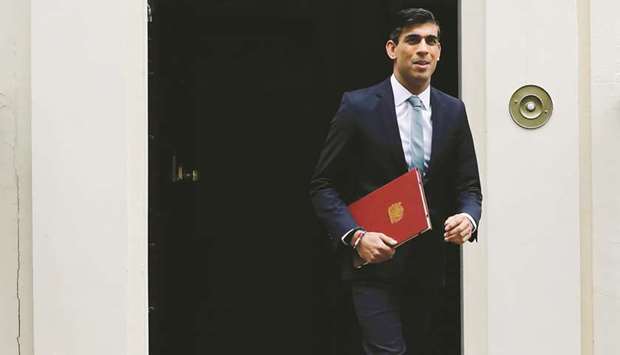The government will slash VAT in hospitality and leisure businesses, introduce a stamp duty holiday and spend up to £9bn rewarding employers that bring back furloughed staff, the chancellor said in his summer statement yesterday.
Outlining measures designed to protect existing jobs and create thousands of new ones, Rishi Sunak said he offered all nations of the UK comprehensive proposals to support the economy and help it bounce back from crisis.
Amid concerns that struggling businesses will be forced to sack tens of thousands of furloughed staff as the government’s main jobs subsidy is wound down from next month, Sunak said employers could claim a £1,000 bonus for each one of the 9.4mn staff furloughed since March that return to work.
A cut in VAT from 20% to 5% on hospitality and leisure services – including restaurants, cafes, zoos and cinemas – until next January would cost the Treasury £4bn, he said and would combine with a 50% discount on eating in restaurants and cafes as part of an “eat out to help out” discount.
The VAT cut, effective from next Wednesday, will not apply to alcohol served in pubs or restaurants.
An immediate stamp duty holiday for homes sold for up to £500,000 in England and Northern Ireland, until March 31, was also announced.
Sunak said the move would save jobs in the construction sector and encourage homeowners to move and invest in their homes.
The fresh spending commitments came as Sunak said the government would be defined by its response to the crisis and he would never accept unemployment as an unavoidable outcome of the Covid-19 pandemic.
He said the government will fund six-month job placements for an estimated 350,000 18- to 24-year-olds to prevent the young from bearing the brunt of the economic crisis.
Trailed overnight in advance of the statement, Sunak said the £2bn scheme will support employers when they offer universal credit claimants a job.
Each “kickstarter” job will cover 100% of the national minimum wage for 25 hours a week, allowing employers to provide wage top-ups without any clawback of state funds.
People under 25 receive a lower national minimum wage, starting at £4.55 an hour for someone under 18, rising to £6.45 an hour for 18- to 20-year-olds and £8.20 an hour for 21- to 24-year-olds.
The chancellor said companies could start making applications for the jobs subsidies within a month and the first young people would be employed in the autumn.
In the first two months of the Covid-19 crisis the number of 18- to 24-year-olds claiming universal credit rose by a quarter of a million to almost 500,000, while it is estimated that 700,000 school leavers and university graduates will enter a depressed jobs market this summer.
The plan revives an idea used by Labour during the global financial crisis that the tax and spending watchdog, the Institute for Fiscal Studies, has already assessed as an effective scheme.
Alongside the youth scheme, the chancellor announced a £3bn green investment recovery package to decarbonise public buildings and cut emissions from poorly insulated homes.
In a further move to generate jobs around the country, Sunak said the plan includes £1bn for public buildings – such as schools and hospitals – and a £2bn scheme to retrofit people’s homes.
Homeowners will also be able to apply for vouchers of up to £5,000, with up to £10,000 available for some of the poorest families.
“We are doubling down on our ambitions to level up,” he said.
Around £120mn will be made available for capital spending in the arts and culture industry to boost jobs.
This investment will be part of a broader £1.57bn rescue package to help weather the impact of coronavirus.

Chancellor of the Exchequer Rishi Sunak leaves 11 Downing street in central London yesterday.
